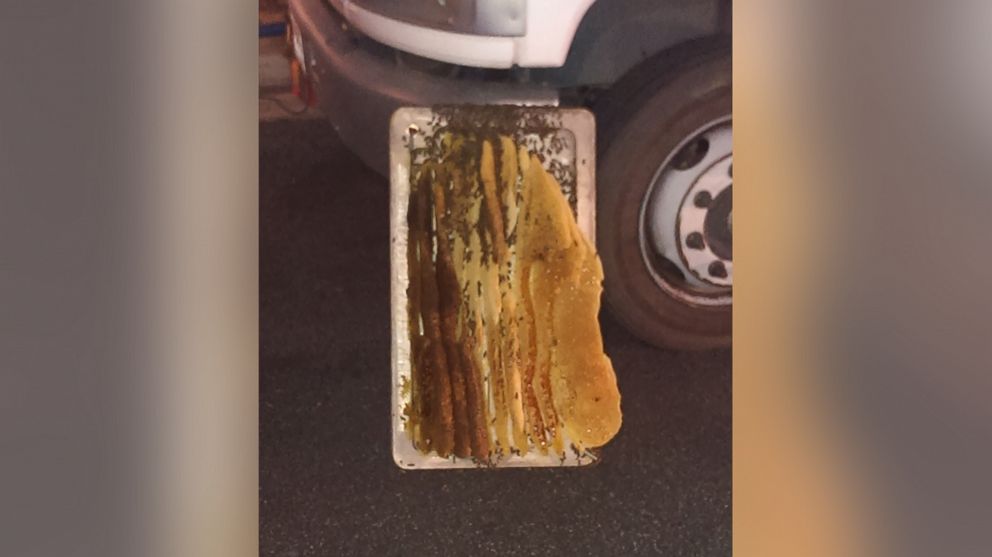Woman Expected to Survive 1,000 Killer Bee Stings
March 8, 2014— -- A 71-year-old California woman, five firemen who came to her rescue and a group of concerned neighbors are all recovering after being attacked by an angry swarm of 80,000 African killer bees.
The unidentified woman, who is not from the area, was visiting a friend in Palm Desert, Calif., when she was stung 1,000 times on Thursday shortly before 4:30 p.m., a fire official said. She is expected to survive, and the hive has since been removed from the scene of the incident.
A Verizon employee had been called out to a residence at Lucerne Drive and Merrill Drive earlier that day to check on a report of bees in an underground fiber-optic cable box. After lifting the box lid, the employee agitated the bees, which swarmed out and enveloped the woman, Cal Fire Battalion Chief Mark Williams told ABC News.
"When the first engine company arrived, they described an elderly woman completely covered head to toe in bees, as if she was wearing a suit of bees," Williams said. "They were even pulling stings out of her mouth."
Three firemen immediately came to the woman's aid, throwing a blanket around her and lifting her into a waiting ambulance. Those firemen received multiple stings to the face, neck, back and hands, and were taken along with the woman to a Riverside County hospital, Williams said.
Two other firemen, the Verizon employee as well as a few neighbors who ventured outdoors to see what the noise was all about, were also treated for stings and released at the scene.
The Riverside County Sheriff's Department put out a reverse 911 call, warning everyone within a two-mile radius that there was a threat in the area and telling them to stay indoors.
The woman was taken in critical condition to Eisenhower Medical Center in Palm Springs. She is expected to survive, but her current condition was unknown, Williams said.
He said the woman's husband was grateful to the fire crew that helped save his wife and thanked each of them personally at the hospital.
Eisenhower did not immediately return phone calls from ABC News.
"In 20 years I've never been on a case like this," Williams said. "In Southern California, we're starting to hear bees are becoming more prevalent in the area."
The beekeeper who volunteered to remove the hive free of charge told ABC News the hive contained roughly 80,000 bees that had moved into the Verizon cable box about a year ago.
"Somebody procrastinated and didn't take care of it the right way," said Lance Davis, owner of Killer Bee Live Removal. "These are bee proof boxes -- the lid weighs 40 pounds. Whoever serviced the box prior, didn't put on the lid properly."
It took two and a half hours to remove the bee hive and relocate it further down the valley, said Davis, who plans to later rehabilitate the hive by adding a queen bee.
Davis said this was a particularly large hive, with the average in the area containing roughly 3,000 to 5,000 bees. Davis added he believed the woman survived by "the grace of god," as he has never heard of anyone receiving that many bee stings without dying.
"I've been stung 600 times and that was very uncomfortable ... this woman is going to have [post traumatic stress disorder]," Davis said.




